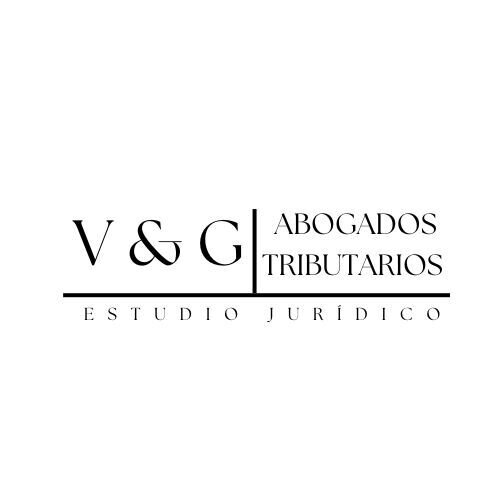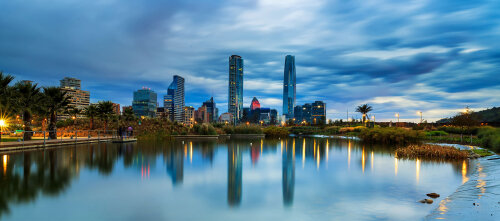Best Native People Lawyers in Concepción
Share your needs with us, get contacted by law firms.
Free. Takes 2 min.
List of the best lawyers in Concepción, Chile
About Native People Law in Concepción, Chile
Concepción is a major city in the Biobío region of southern Chile, an area rich in indigenous history and culture. The primary Native Peoples in this region are the Mapuche, but there are also members of other indigenous groups. Chilean law recognizes and seeks to protect the rights of its indigenous population, addressing issues such as land ownership, cultural preservation, and community participation in government decisions. In Concepción, Native People may encounter legal matters relating to property, environmental protection, cultural heritage, and discrimination.
Why You May Need a Lawyer
Native People in Concepción may find themselves needing legal advice or representation for several reasons. Common situations include disputes over ancestral land, seeking protection of cultural heritage sites, facing discrimination or exclusion in public services, or navigating government programs for indigenous development or compensation. Additionally, issues may arise regarding environmental damage to land traditionally used by indigenous communities, employment rights, and participation in governmental decision-making processes that affect their lives. Lawyers with experience in indigenous law can also assist in matters of recognition of indigenous identity and access to educational or health benefits.
Local Laws Overview
Chilean national law, most notably Law No. 19.253 known as the "Indigenous Law," provides a legal framework for the rights of Native People. This law outlines the recognition, protection, and promotion of indigenous cultures and communities. It establishes the National Corporation for Indigenous Development (CONADI), which operates in the Biobío region from Concepción. Important aspects of these laws in Concepción include:
- Recognition of collective and individual rights of indigenous people
- Procedures for reclaiming ancestral land and protection from illegal encroachment
- Governmental support for indigenous language and culture preservation
- Participation of Native People in decisions on resource use, particularly forestry, agriculture, and mining
- Anti-discrimination provisions in education, health, and employment
Frequently Asked Questions
What is the main law protecting Native People in Concepción?
The main law is Law No. 19.253, also known as the Indigenous Law, which recognizes and protects the rights of indigenous people throughout Chile, including Concepción.
How can Native People reclaim ancestral land in the Concepción region?
Communities can present claims to CONADI. The process involves documentation, proof of historical connection to the land, and sometimes mediation or legal proceedings, especially in cases of conflict with current landholders.
What types of discrimination are prohibited under Chilean law?
Chilean law prohibits discrimination based on ethnicity or indigenous status, especially in education, employability, health care access, and public services.
Are there special education programs for indigenous students in Concepción?
Yes, there are programs supporting bilingual education, cultural preservation, and scholarships. These are coordinated by the Ministry of Education and CONADI.
Can non-Mapuche indigenous people access the same legal protections in Concepción?
Yes, the law applies to all recognized indigenous peoples in Chile, not just the Mapuche.
What should someone do if they believe their indigenous rights have been violated?
They should document all relevant facts, seek assistance from indigenous organizations or CONADI, and consult a lawyer specializing in indigenous law for possible legal action.
Is it possible to get legal representation for free?
In some cases, low-income individuals or communities may qualify for pro bono legal services through organizations or public defender’s offices.
How does the government consult with indigenous communities on projects that affect them?
By law, the government must conduct prior consultation (consulta previa) with indigenous communities before approving projects that may impact their land, resources, or cultural heritage.
Who can help with the process of recognizing indigenous status?
CONADI provides the official process and requirements for individuals and communities to get recognized as part of an indigenous group.
What are the environmental rights of Native People in Concepción?
Native People have the right to participate in decisions regarding the use of natural resources on their land and may seek protection from environmental harm through both legal and administrative channels.
Additional Resources
For those seeking more information or assistance in indigenous legal matters in Concepción, the following resources may be helpful:
- National Corporation for Indigenous Development (CONADI) - Has regional offices in the Biobío region
- Municipal Office for Indigenous Affairs in Concepción
- Centro de Estudios Mapuche Rütramnaguluwün - A local cultural and legal support center
- Legal clinics at local universities, such as Universidad de Concepción
- Regional Human Rights Institute
Next Steps
If you need legal assistance regarding Native People issues in Concepción, start by documenting your situation in detail, including dates, locations, and names of all involved. Reach out to one of the listed resources above to request guidance or representation. It is often beneficial to speak with a lawyer who has experience in indigenous law. You may also consider approaching local indigenous organizations for support or to find out about community-specific initiatives. By taking these steps, you can ensure your rights and interests are well protected within the legal framework of Concepción and Chile.
Lawzana helps you find the best lawyers and law firms in Concepción through a curated and pre-screened list of qualified legal professionals. Our platform offers rankings and detailed profiles of attorneys and law firms, allowing you to compare based on practice areas, including Native People, experience, and client feedback.
Each profile includes a description of the firm's areas of practice, client reviews, team members and partners, year of establishment, spoken languages, office locations, contact information, social media presence, and any published articles or resources. Most firms on our platform speak English and are experienced in both local and international legal matters.
Get a quote from top-rated law firms in Concepción, Chile — quickly, securely, and without unnecessary hassle.
Disclaimer:
The information provided on this page is for general informational purposes only and does not constitute legal advice. While we strive to ensure the accuracy and relevance of the content, legal information may change over time, and interpretations of the law can vary. You should always consult with a qualified legal professional for advice specific to your situation.
We disclaim all liability for actions taken or not taken based on the content of this page. If you believe any information is incorrect or outdated, please contact us, and we will review and update it where appropriate.










